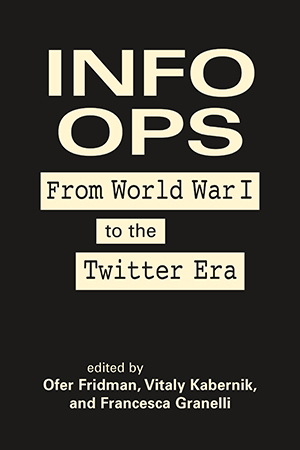Since antiquity, information has been used in conflict—to deceive, to demoralize, to sow fear among enemy troops. Not until the twentieth century, though, did information operations become so central to war. In Info Ops, the authors assess the evolving role and increasing relevance of information operations from the leaflet bombardments of World War I to the present digital age.
Ofer Fridman is director of operations at the Centre for Strategic Communications (CSC), King's College London. Vitaly Kabernik is a division head in the Department of Innovative Development at Moscow State Institute of International Relations (MGIMO University). Francesca Granelli is visiting senior lecturer at King's College London.
"An excellent overview of how different actors have used information in open conflict situations to undermine the resolve and spirit of their adversaries." —José de Arimatéia da Cruz, Parameters
"An important contribution.... The insights are fresh, fascinating, and, for practitioners, actionable." —James. P. Farwell, Middle East Institute








